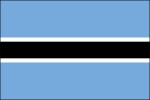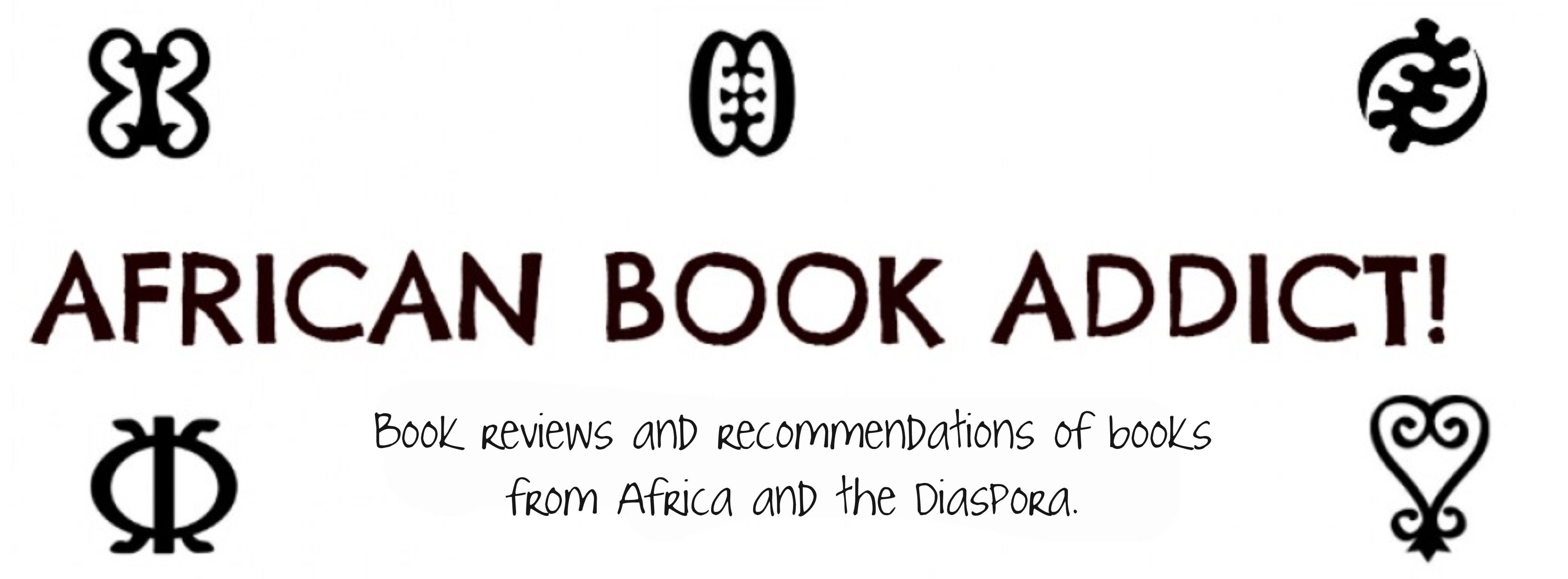Date Read: July 5th 2016
Published: 2015
Publisher: The Mantle
Pages: 128

The Blurb
We Are All Blue (Botswana) is a collection of two plays – Blue, Black and White & Motswana: Africa, Dream Again – by the actor and playwright Donald Molosi, including an introduction by Quett Masire, former president of Botswana.
Blue, Black and White (2011), the longest running one-man show in Botswana’s history, was the first-ever Botswana play staged off-Broadway in New York City, where Molosi won a best actor award. BBW is about the country’s first democratically-elected president, Sir Seretse Khama, and his interracial, transformative marriage. Winner of several awards, the play has been performed around the world.
Motswana: Africa, Dream Again is the story of Botswana and its people as they transition from a British colony to an independent state. The play premiered off-Broadway in 2012 where it won an award at the United Solo Festival, the world’s largest solo theatre festival. Written, directed, and performed by Molosi, the play has been performed across the U.S. and is on tour in Botswana and South Africa.
◊◊
Review –★★★★ (4 stars)
Donald Molosi is a brilliant playwright. What better way to learn about Botswana than by reading a play? The last time I read a play set in Africa was Ola Rotimi’s Our Husband Has Gone Mad Again, back in high school. Reading We Are All Blue was refreshing and I learned a GREAT deal about Botswana from this creative collection of two short plays.
The first play entitled, Blue, Black & White takes readers to a classroom, where young students are learning about pre-independence Botswana (or Bechuanaland, as the British called it) and Botswana’s founding father – Sir Seretse Khama’s controversial marriage to his British wife, Ruth Williams. The title of this play is actually the colors of Botswana’s flag: blue represents water, which is considered the lifeline of the desert nation; black represents the majority black population; the white strips represent the white citizens with whom the Motswana want to live in harmony with.

Botswana’s blue, black and white National flag
The play simultaneously educates the students in their classroom as well as the reader of the Khama love story, Botswana’s road to independence and the importance of being inclusive as an African nation. I found this play to be oh soo cute! I loved all the characters (students) and the side conversations they had with their annoyingly domineering teacher.
Reading about history can be boring and tedious. But this play definitely informs Motswana (Motswana – citizen of Botswana) and others – both of African and non-African descent, on some facts about Botswana’s first president and the challenges the nation overcame in order to be as inclusive of all people as possible. The film – A United Kingdom directed by Amma Asante (yes, the Ghanaian-Brit film director!) based on Sir Seretse Khama and Lady Ruth’s disputed interracial romance, has been selected to open the 60th BFI London Film Festival in October! It should be showing in cinemas by November. I will definitely keep an eye out for that!
The second play entitled, Motswana: Africa, Dream Again is essentially a play on what it means to be Motswana (again, Motswana means, a citizen of Botswana). In this play, the protagonist – Boemo, is sooo woke! Boemo is a thirty year old member of parliament who seems annoyingly conscious (to everyone else) of his identity as Motswana and as an African. As a child of the new generation, he identifies more with being Pan-African than identifying solely as Motswana,
My mind and my knowledge of myself are formed by the victories that are the jewels in our African crowns, the victories we earned from Lagos to Juba, from Dimawe to Sophiatown, as the Ashanti of Ghana as the Berbers of the Sahara, as the Swahili of Tanganyika. Being part of all these people, and in the knowledge that none dare contest that assertion, I shall claim that I am African. And I am a Motswana (page 80).
Motswana: Africa, Dream Again is super short and straight to the point in its criticisms and depiction of post-colonial Botswana and what it means to call yourself an African today. I truly appreciate the Pan-African nature of this play. It erases the borders the colonial masters drew around us and simply articulates the importance of celebrating all African nationalities and identities – be it Namibian, Ugandan, Chadian, Ethiopian, Burkinabé, Moroccan or Africans from the diaspora – as ONE,
I want to believe that a common ancestry is what binds us as Africans. I often imagine a common ancestor holding all Africans fiercely and warmly inside her womb… (page 96).
I always thought my first read from Botswana would be by Bessie Head, but Donald Molosi beat her to it! I’m eager to see Molosi perform live on stage one day, as he’s primarily an actor. I especially love that he got his undergrad degrees (in Political Science and Theatre) from Williams College – Middlebury’s (my alma mater) sister liberal arts school! So many young people of African descent doing amazing things. Read We Are All Blue if you want to enjoy a collection of entertaining, historical plays on Botswana and on Africa as a whole. This collection is inspiring.
★★★★ (4 stars) – Great book. Highly recommend!
Purchase We Are All Blue on Amazon

This review is in collaboration with the 2016 Writivism Festival in Kampala, Uganda (August 22nd – 28th 2016). I’d like to give a special thank you to Bwesigye Bwa Mwesigire and the crew over at #Writivism2016 for sending me an e-copy of We Are All Blue.🙂

Adding to my Goodreads! I don’t often read plays but I like the topics these touch on. I could learn a lot from them.
LikeLiked by 1 person
Yaay Anais! These plays were awesome. You’ll definitely get a good, fun dose of Motswana history from them. Molosi does a great job at making the plays fun too! + its such a short book. You can finish it in 40 mins 🙂
LikeLiked by 1 person
I took a grad class that covered British theater, and I remember most of the books were NOT set in England, but places the British had colonized, including India, Ireland, and many African countries (I just went through my whole Goodreads “read” shelf, but I don’t have any of the plays saved on there. This was pre-Goodreads). There really IS something about a play that can teach in a way that’s different than a history or fiction text.
LikeLiked by 1 person
Hey Melanie! Interesting the plays were NOT even set in England. SMH, colonization was so shitty…
LikeLiked by 1 person
I don’t know if I could understand the books but they certainly sound interesting. I’m glad plays are being written again and being read again.
LikeLike
Hi My Book Jacket, thanks for passing by. Why wouldn’t you understand these plays?
LikeLike
Oh. Because I don’t know anything about these subjects. And history isn’t my forte. But I’d certainly like to try. ^_^
LikeLike
I dont read a lot of plays. But the themes in this one sure sound interesting. Great review
LikeLike
You read the most interesting books!
I especially like when you recommend short ones because they’re my favorites 🙂 I’ll add this one to my impossibly long TBR. sigh. Thanks, though!
LikeLiked by 1 person
Thanks Naz! Yeah, its super short and was surprisingly entertaining. I hope you read it one of these days. Thanks for always stopping by 🙂
LikeLike